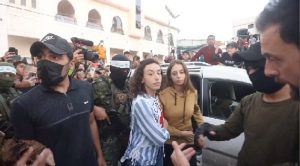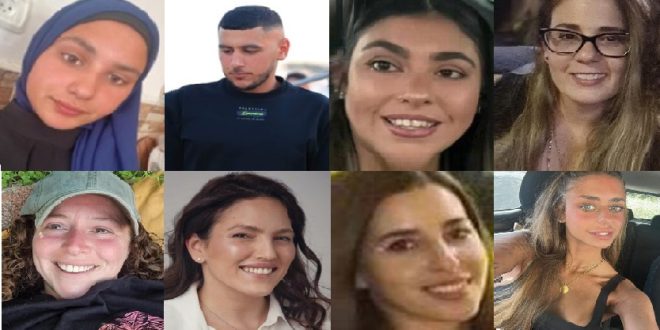02-12-2023
TEL AVIV/ GAZA CITY: Eight more Israeli hostages were freed from Gaza on Thursday, Day 7 of the truce with Hamas.
 Two hostages released on Wednesday were also counted in Thursday’s tally, meaning the day’s total was 10.
Two hostages released on Wednesday were also counted in Thursday’s tally, meaning the day’s total was 10.
Israel says it freed 30 more Palestinian prisoners from jails in return.
Talks are continuing about extending the pause with the US saying it’s working “by the hour” with Qatar, Egypt and Israel to try and extend it.
Top US diplomat Antony Blinken who is in the Middle East, says he told Israel it must take “more effective steps” to protect civilians’ lives.
The Hamas attacks on Israel on 7 October killed 1,200 people with around 240 others taken hostage.
Since then, Gaza’s Hamas-run health ministry says more than 14,800 people have been killed in Israel’s retaliatory campaign, including about 6,000 children.
A seven-day truce between Israel and Hamas is due to expire in the coming hours it’s not yet clear if it will be extended again.
Under the truce deal, eight more Israeli hostages, six women and two young siblings were freed by Hamas while Israel released another 30 Palestinian prisoners
US Secretary of State Anthony Blinken visited Israel and the West Bank and urged Israel to take “more effective steps” to protect civilian lives in Gaza.
Three people were killed and several others injured when two Palestinian gunmen opened fire at a bus stop in West Jerusalem. The perpetrators were killed at the scene by off-duty soldiers; Hamas claimed the attack.
A senior Israeli doctor has told media that some of the youngest hostages released from captivity by Hamas in recent days looked like “shadows of children” upon their arrival at hospital.
Dr Efrat Bron-Harlev, head of the Schneider Children’s Medical Center in Tel Aviv, said 26 of the 100 or so hostages released so far had been taken to recover at her hospital. She told media that while many had since been released from medical care, their recovery was proving to be a “painful process” especially for younger hostages.
“I would say that when they come, they don’t really look like children, I would say they would look more like shadows of children, kind of hollow children, they have no impression on their face,” Bron-Harlev observed. “Not sad, not happy, just no impression, they hardly speak, very, very quiet. If they do speak, it’s very, very quiet.”
“Some of them are having a hard time getting up from a chair, you know, like little like older people that need some help while they get up from a chair.” (Int’l News Desk)
 Pressmediaofindia
Pressmediaofindia





